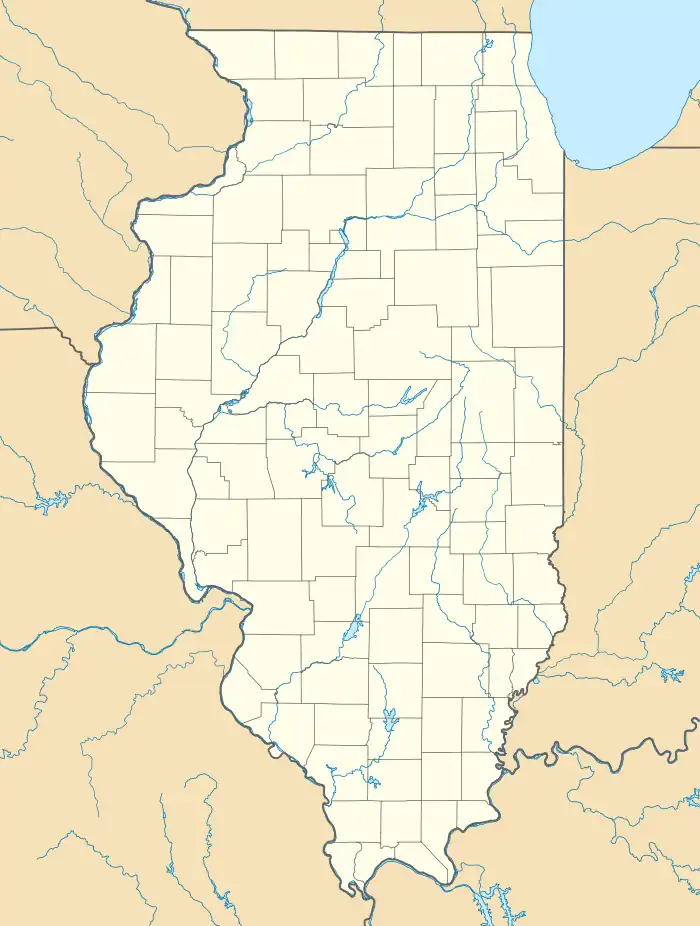
The location of the English Settlement in present-day Illinois.
The English Settlement is the name given to a planned settlement of some 26,000 acres (110 km2) in the Illinois Territory. It was founded by Morris Birkbeck and George Flower in the early nineteenth century. In 1816 the two men chose the location, bought the land, and eventually brought over about 200 settlers from England. The chief surviving town is Albion, Illinois, although some of Birkbeck's followers joined the Owenite utopian community at New Harmony, Indiana after his death. The well funded and organized English settlement was important both for its influence on pioneer agriculture and the influence of its leaders on rejecting slavery in Illinois.[1]
References
- ↑ "The History of Southern Illinois". Archived from the original on 2013-11-04. Retrieved 2013-11-04.
Further reading
- Boewe, Charles E. (1999) [1962]. Prairie Albion: An English Settlement in Pioneer Illinois. Southern Illinois University Press. ISBN 9780809322831.
- Allen, John W. (2010). "What They Said About Us: History of the English Settlement in Edwards County". It Happened in Southern Illinois. Southern Illinois University Press. pp. 362–374. ISBN 9780809385669.
38°22′38″N 88°3′40″W / 38.37722°N 88.06111°W
This article is issued from Wikipedia. The text is licensed under Creative Commons - Attribution - Sharealike. Additional terms may apply for the media files.